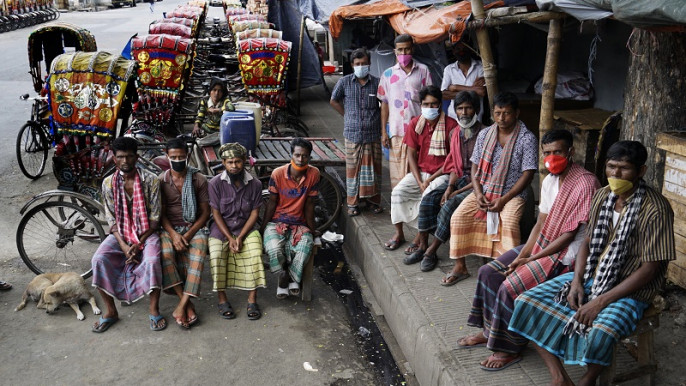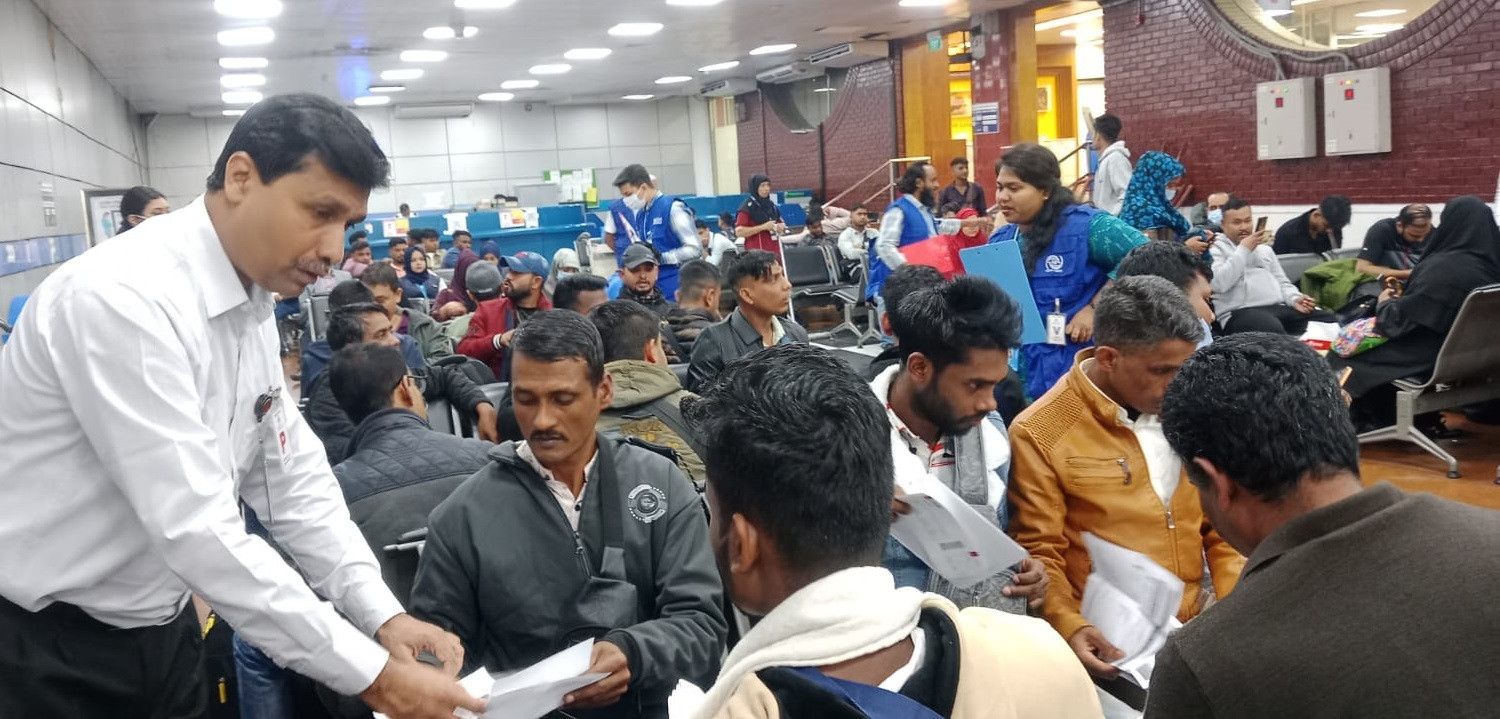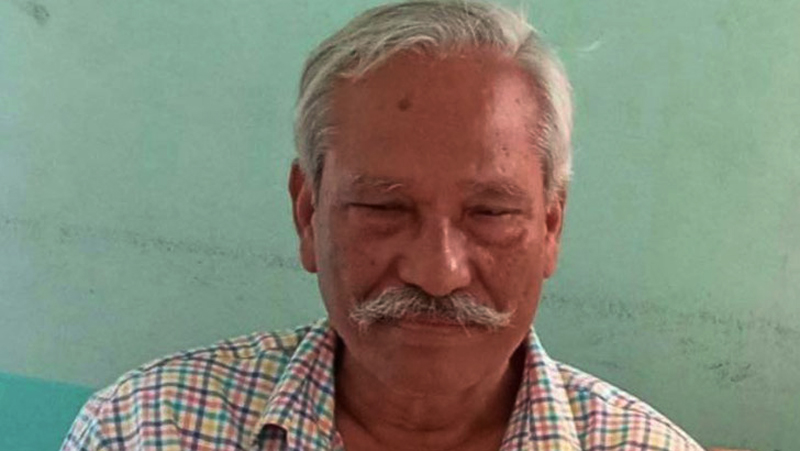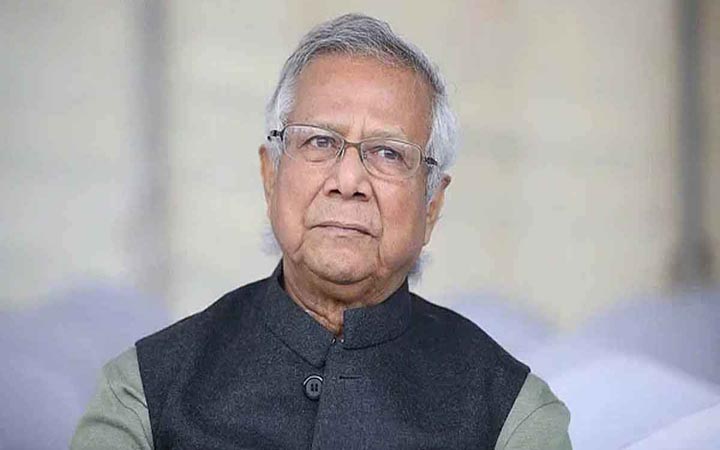Mohammad Raja is a homeless hawker who lives near Karwan Bazar. He used to sell lemons for a living but with the ongoing shutdown, Raja has no income and on most days he has been almost starving.
On Thursday, Raja could manage only one meal for himself instead of the usual three.
When he thinks about how he will spend the rest of the lockdown, an incredible helplessness consumes him.
"I used to earn Tk200-300 every day selling lemons to people stuck in traffic signals but now with nearly no vehicles on the road, that is not possible. I do not even have any savings," Raja told The Business Standard.
Raja is not alone in his plight. Countless numbers of rickshaw pullers, van drivers, hawkers, day labourers, and low-income people are in the same boat.
According to a survey conducted by Brac last year among 2,675 low-income people in 64 districts, the extreme poverty rate increased by 60% in the country and at least 14% of people cannot manage daily meals. The survey was conducted between 31 March and 5 April.
And now with a strict lockdown in force again, many low-income people are crowding on city streets and before mosques in search of food. They complained that the government is not offering them any food aid amid this lockdown.
Jolekha Begum is a mother of three. She lost her husband a few years ago and came to the capital in search of a better life. Living in a makeshift tent in front of the Trading Corporation of Bangladesh building in Karwan Bazar, she made a living by selling towels and flowers on the street but her sales have gone down to zero amid the latest lockdown.
"We used to manage at least two meals a day but now, we can only manage lunch. We do not have any food left, nor do I have any money," Jolekha said.
She said that even though people helped a little in the first lockdown, they do not anymore.
"The government has not helped us even with a kilogram of rice either. Maybe the government wants the poor to die so that they can show off a country without poor people," Jolekha sighed.
Shafiqur Rahman is a van driver. With five members in his family, he lives in a slum in Kathalbagan. Amid the shutdown, his income has also plummeted.
"Van drivers are completely unemployed as no one is moving furniture or shifting houses. I do not know how we will survive if the lockdown continues like this," he said.
He appealed to the government to at least arrange food for the low-income groups amid the lockdown.
"If they do not want to provide aid, they should lift the lockdown. We do not steal nor do we beg. Is it too much to ask if we merely want to work to survive?" Shafiqur continued.
Day labourer Nazrul Islam, who lives with his family of six in the Kalyanpur slum, is also going through miserable days. He has not worked in six days. His wife Rani Begum, who used to work in a house, lost her job amid the new wave of the pandemic as well.
Rani said, "Now, both my husband and I are unemployed. If the government does not extend help, we do not have any hope for survival."
In the slums of Kallyanpur, at least six to seven people are living in one room. There are no options for them to follow social distancing or general healthcare guidelines. The residents of the slums said they are not worried about the virus. They are more worried about dying of starvation.
For people with low income in the city, one of their biggest concerns is rent, along with food shortage. As most of them found no work during the lockdown, they are struggling to make rent.
Setara Begum is one such person. Her husband passed away 17 years ago. She worked as a dishwasher in restaurants. She lost her job when the pandemic broke out last year. Helpless and alone, she now feeds herself by begging.
"I have grown old and on top of that due to Covid-19, no one hires me. I live by taking alms from people. I have come out this morning to beg even in this rain. I have still not got any money. During the Jumma prayers, I will go stand in front of the mosque and see if anyone will give me some money. I cannot even manage food for myself from begging and I have three months' rent due for my room in the slum."
Travelling around Dhaka city revealed innumerable people begging along the streets and at the crossroads of the city. Many of them were not beggars but because of the fallout of Covid-19, they have chosen this path to survive.
Like Setara, Rizia Begum and Romena Begum have also chosen begging as a means of survival. Expressing their frustration, they said they had received a few kilograms of potatoes, rice, and lentils during the last lockdown, but nothing so far this time.










